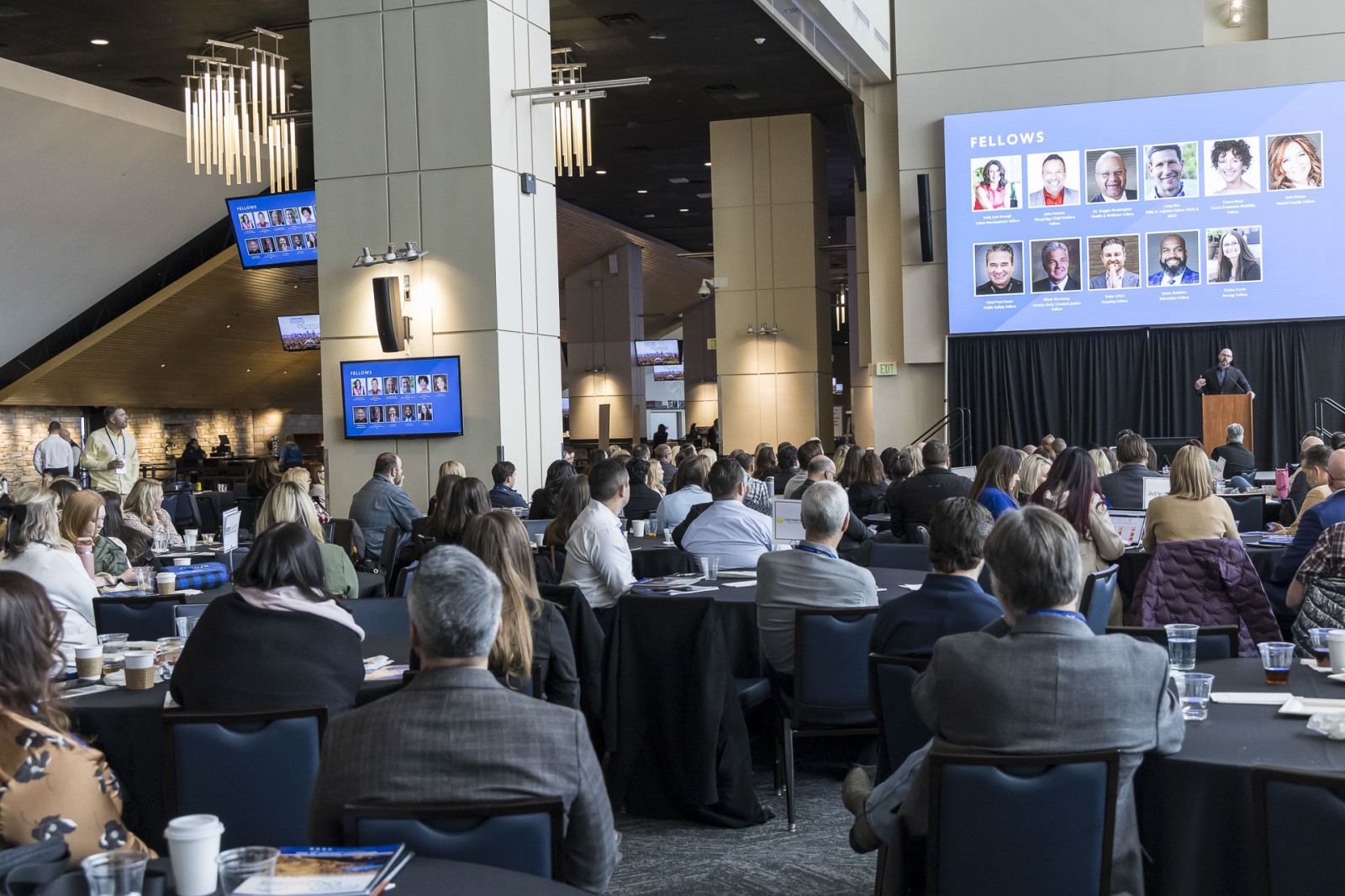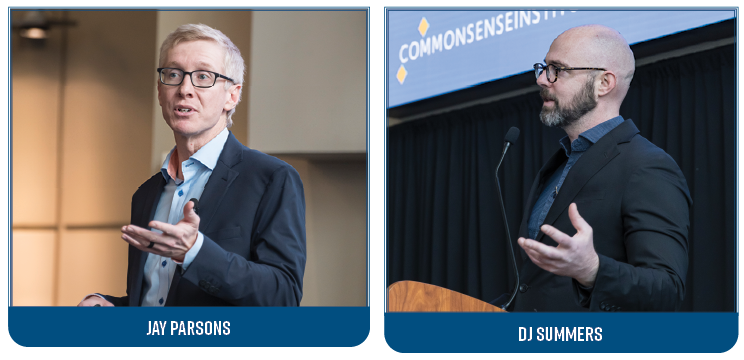Statistics, Insights and Strategies for the Denver Metro Area Market

As AAMD’s first major event of 2025, the EconXchange conference brought together over 350
members, industry experts, and economists for a day of networking and insights into navigating the challenges of the evolving economic landscape. Attendees received a full vacancy and rent report, which included the a plethora of data and statistics.
Here are some of the Metro Denver highlights & statistics from 2024 and specifically the fourth quarter:
- Nearly 20,000 new apartment homes were completed in 2024, which is an all time record. Total apartment homes in the Metro Denver area now are 434,465 units.
- These new units came from approximately 90 new apartment communities from Boulder to Castle Rock, with about half of them built in the city of Denver.
- Nearly 70 different Developers completed at least one project in 2024 and on average the total construction time was 2.5 years.
- The average size of community built in 2024 was 222 units
- 2024 Rent levels had their largest single quarter drop ever from 3rd to 4th Quarters, where average monthly rent dropped by $69! The new record levels of supply in 2024 kept rents in check all year long, as they fell 1.5% for the year.
- Current average rent (Q4) is now $1,842; avg rent per square foot is $2.14. Median rent is down to $1,750 – which is $13 lower than 2 years ago!
- Vacancies were pushed to their highest levels in 15 years- to now 6.9% of the market, leaving nearly 30,000 apartments vacant in the 4th quarter.
- Vacancy increased market wide in ALL 33 submarkets studied. Studio apartments have the highest vacancies of the unit types, and the newest built construction has the highest vacancies of all the age groups.
- While absorption was +12,536 units for the year, the 4th Quarter had negative 4,862 absorption, which is a 22 year low for absorption.


Economic Conference Chair LaSarha Swanson of Highmark Residential and
Vice-Chair Kelly Larson of Asset Living presided over this day-long event, which highlighted the importance of networking along with its economic updates.
The day began with a lively business- to-business exchange event, where supplier partners were able to meet one-on-one with decision makers from many Denver-area property management companies and communities. This morning
session provided a valuable platform for networking, fostering connections, and exploring innovative solutions for the multifamily housing industry.
As the first speaker of the afternoon Economic Conference presentations, rental market economist Jay Parsons presented a comprehensive analysis of Denver’s real estate market, and how it compares to the national scene. While Denver is experiencing a 50-year high in apartment completions which has pushed rents downwards, at his has presented a challenging growth in vacancy rates as renter retention rates have improved. The relative affordability of the Denver market leaves many opportunities for growth, although the supply and demand dynamics remain a major challenge. When all of the Denver metro stats are comprehensively viewed, this past fourth quarter may have been possibly the softest quarter on record.

Other highlights from Jay Parson’s included:
- Home prices have grown twice as much as rents since 2021. The theme of it’s cheaper to rent than buy has held true since 2021.
- For 24 straight months wage growth has outpaced rent growth… 4.3% in wage growth compared to .3% in rent growth.
- In the US, renters pay 31% of their income in rent. In professionally managed REITs this figure is in the low 20%.
- Most markets throughout the US have been able to keep rents stabilized since last summer, but not Denver or Aurora.
- The average renter in the US is 31 years old.
- Future supply until 2026-27 still very strong, but after 2027 things will likely really slow to a near shut down mode
- Most economist liken the 2:1 income to rent law in Colorado (SB 23-184) to the 2008 housing crisis, because people are being led to believe they can buy/rent something they really cannot afford. This is a substantial cause of the rising eviction filing stats
Next up, audiences were treated to a Client Services Panel discussion featuring local market experts Amie Robertshaw, Elizabeth Dapper, Liz Shrout, and Annalisa Lavoie.
This conversation largely focused on how partnerships and data-driven approaches can help businesses navigate economic pressures. Panelists discussed practical strategies and methods to adapt service models, enhance customer satisfaction, and maintain growth amidst uncertainty. A common theme was established by the panel in that -honestly presenting facts to clients and team members is the best practice when it comes to communication and serving the clients long term goals.
A presentation by DJ Summers, director of policy and research at the Common Sense
Institute, explored the high cost of crime as it affects the local economy. He revealed that crime cost Colorado an estimated $27.2 billion in 2022. Violent crime significantly impacts public safety, leading to decreased foot traffic and high vacancy rates in downtown areas which impact economic growth. DJ discussed new policies which are designed to enhance public safety and attract businesses back to impacted communities, while stressing the need for data-driven strategies to reshape public perceptions and foster economic recovery.
M. Nolan Gray, an expert in urban land use regulation, concluded the event with a forward-looking presentation on adapting to market challenges and seizing opportunities for long-term success. He urged attendees to embrace innovation and flexibility as cornerstones for navigating economic complexities.
Throughout all of the day’s conversation, resilience emerged as a central theme.
From the morning’s business exchange to the afternoon’s expert presentations, attendees explored strategies to address challenges and leverage trends to drive growth. All attendees left the event with actionable insights and strengthened connections, ready to navigate the economic complexities of 2025 with confidence and creativity.
